Analysis: Leader’s speech on Syria crisis ignites hope that Israeli-US plots will fail
By Press TV Staff Writer
In his first remarks since the fall of Bashar al-Assad’s government in Syria, the Leader of the Islamic Revolution, Ayatollah Seyyed Ali Khamenei, said the events that unfolded in the Arab country over the past week were orchestrated in the command rooms of the United States and the Israeli regime.
The “regime change” plot, long in the making, gained momentum immediately after the Israeli regime agreed to a ceasefire in Lebanon late last month, following its failure to achieve any military objectives after nearly 70 days of unbridled aggression.
Originating from the northwestern city of Aleppo, militant groups led by Hayat Tahrir al-Sham (HTS) made dramatic and stunning advances, ultimately forcing Assad to leave the country on Sunday, bringing his long reign to an end.
“There should be no doubt that what happened in Syria was plotted in the command rooms of the United States and Israel. We have evidence for this," the Leader told the gathering in Tehran on Wednesday.
“One of the neighboring countries of Syria also played a role, but the primary planners are the US and the Zionist regime,” he added, without mentioning the name of the country.
The Americans not only propped up these militant groups over the years to undermine the democratically-elected Assad government but also imposed crippling sanctions designed to weaken Syria’s economy and foment public discontent.
US President Joe Biden described the collapse of Assad’s government as “a fundamental act of justice,” crediting it to the US and its allies, particularly the Israeli regime, for “weakening Syria’s backers.”
“Our approach has shifted the balance of power in the Middle East,” Biden was quoted as saying following a meeting with his national security team on Monday.
Donald Trump, who is set to reoccupy the White House next month, stated on Saturday—one day before the announcement of Assad's fall—that Washington "should have nothing to do" with developments in Syria, literally giving a free hand to HTS militants to swarm the Syrian capital.
"This is not our fight. Let it play out. Do not get involved," he posted on his Truth Social platform.
Watch: Speech made by the Leader of the Islamic Revolution, Ayatollah Khamenei, regarding recent developments in the region, especially Syria https://t.co/X9VsWwTAY3
— Live Stream (@Stream_liv) December 11, 2024
Documents reveal that the US had tried unsuccessfully for years to overthrow Assad’s government, viewing him as a major obstacle in their efforts to undermine Iran and the Axis of Resistance.
One prominent organization involved in the US’s “regime change” project in Syria is the Syrian Emergency Task Force (SETF), funded by the US Agency for International Development (USAID), a proxy of the Central Intelligence Agency (CIA).
The day after Assad’s government was overthrown, SETF Executive Director Mouaz Moustafa met with US National Security Advisor Jake Sullivan to discuss what he termed the successful completion of the American “mission.”
The Israeli regime, which thrives on chaos and instability, had supported these militant groups for years, working behind the scenes to destabilize Assad’s government in Damascus.
Benjamin Netanyahu’s “victory” speech following Assad’s fall from the occupied Golan Heights underscored the significance of the outgoing government to the resistance front, as viewed by war hawks in Tel Aviv.
With Assad out of the picture, the Israeli regime now has free rein to illegally seize more Syrian territory and launch airstrikes at will, with no opposition or condemnation from the militant factions that have taken control in Damascus.
The US-Israeli “regime change” plot in Syria was supported by some regional countries, as noted by the Leader of the Islamic Revolution. However, the primary architects of the plan remained the US and Israel.
Does Assad’s fall mark the end of the resistance front? Ayatollah Khamenei asserted that the resistance would continue to encompass the entire region more strongly than ever, emphasizing that the Axis of Resistance does not depend on individuals or governments.
It is a dynamic movement that will endure, irrespective of such regional dynamics.
The Press TV Editorial published on Monday highlighted that the resistance has never relied on any individual or entity. Even before Syria became a logistical hub for the resistance, groups like Hezbollah had already established themselves as formidable forces.
Leader of the Islamic Revolution Ayatollah Seyyed Ali Khamenei says what happened in Syria was a “joint American and Zionist plot”, even though a neighboring country played a role.
— Press TV 🔻 (@PressTV) December 11, 2024
Follow Press TV on Telegram: https://t.co/B3zXG73Jym pic.twitter.com/ytAZV3jaVL
“This is resistance, and this is the resistance front,” the Leader declared in his Wednesday remarks. “The more pressure you apply, the stronger it becomes. The more crimes you commit, the more motivated it grows. The more you fight it, the more it expands.”
The Islamic Republic of Iran has steadfastly supported Syria’s government and people all these years, providing ironclad and extensive assistance at the request of Assad’s government.
Iran will continue to stand by Syria, as Iranian top diplomat Abbas Araghchi confirmed on Sunday. He stressed that Syria’s sovereignty and territorial integrity must be respected and that its destiny should be determined by its own people, not external powers.
Addressing concerns about the impact of Assad’s fall on Iran, Ayatollah Khamenei reassured: “With the help of God, Iran is strong and powerful and will only grow more powerful.”
He said Iran had informed Assad months ago about the advancing militant movements, corroborating recent official reports, and added that the new current in Syria would not last long.
In a recent television interview, Araghchi hinted that Iran had offered assistance to Syria’s military to repel the militant offensive but noted that the Syrian armed forces were unable to mount an effective resistance themselves.
Leader of the Islamic Revolution said when the Syrian Arab Army failed to resist the militant offensives; Iran’s direct involvement in the battle became untenable.
The ongoing debate about the longevity of HTS-led militant groups and the stability of the new ruling entity highlights the multifaceted challenges they face, both internally and externally. These challenges do not augur well for their short-term or long-term future.
“With divine grace, the occupied regions of Syria will be liberated by the courageous youth of Syria. Do not doubt that this will happen, and the US will also be expelled from the region by the resistance front,” Ayatollah Khamenei remarked in his Wednesday speech.
Leader of the Islamic Revolution also discussed the differing goals of various parties currently active in Syria. Some aim to occupy territories in the north and south, while the US seeks to establish a foothold in the region.
Israel exploits Assad’s fall to seize Syrian land and escalate aggression
— Press TV 🔻 (@PressTV) December 11, 2024
Follow Press TV on Telegram: https://t.co/B3zXG74hnU pic.twitter.com/OUsK2AE272
“Time will show that none of them will achieve these goals,” he asserted.
Ayatollah Khamenei further addressed the threat posed by the Daesh terrorist group, describing it as a “bomb of insecurity” intended to destabilize Syria, Iran, and the entire region, with Iran being the ultimate target.
He credited the efforts of Iranian forces under the leadership of top anti-terror commander General Qassem Soleimani for protecting holy sites, restoring security, and halting the alarming spread of terrorism beyond Iraq and Syria.
“They organized, armed, and prepared local youth, enabling them to stand against Daesh and ultimately break its back,” the Leader said, commending General Soleimani’s role.
“Our military presence in Syria and Iraq was advisory, not a replacement for their armies. Our forces established key command centers, defined strategies, and intervened when necessary. Most importantly, they mobilized local youth,” he added.
The leader of the Islamic Revolution also reminisced about Syria’s historical solidarity with Iran, particularly during the imposed war by the West-backed Saddam Hussein regime in Iraq.
“When almost the entire world was backing Saddam against us, Syria cut off the oil pipeline that transported Iraqi oil to the Mediterranean and Europe, thereby halting Saddam's revenue,” he said.
In the concluding part, the Leader of the Islamic Revolution said the crisis in Syria carries lessons and warnings, one of which is the danger of negligence toward the enemy.
“The enemy acted swiftly, but Syrian officials should have anticipated and prepared for such actions,” he noted, adding that Iranian intelligence agencies had repeatedly warned the Syrian government.
“Whether these warnings reached the higher authorities or were lost somewhere remains unknown, but it’s clear that such negligence can have dire consequences,” he asserted.
“One should never underestimate the enemy or be deceived by their smiles. Often, they speak softly but hide a dagger behind their back, waiting for the right opportunity."
VIDEO | Press TV's news headlines
VIDEO | Another Gaza medic dies in Israeli custody
VIDEO | Hezbollah says prepared to defend Lebanon, does not seek war
VIDEO | Celebrations held across China to welcome New Year
VIDEO | Mexico’s historic battle reenactment draws over 200,000 visitors
'ICE-style enforcement': nearly 70 groups slam EU migration policy
Araghchi holds key meetings in Geneva ahead of indirect Talks with US
Iran to hold 40th day commemoration for martyrs of terrorist riots


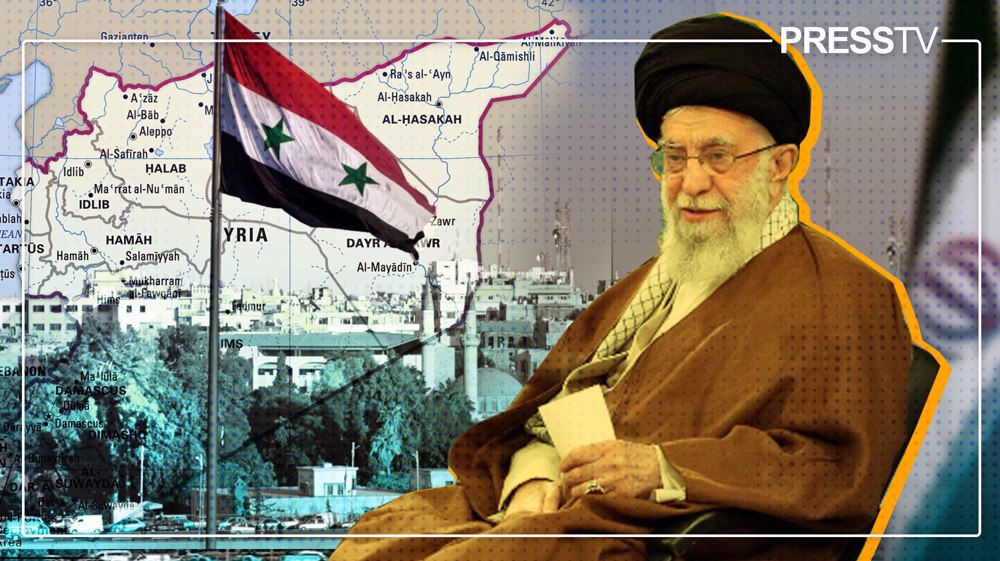
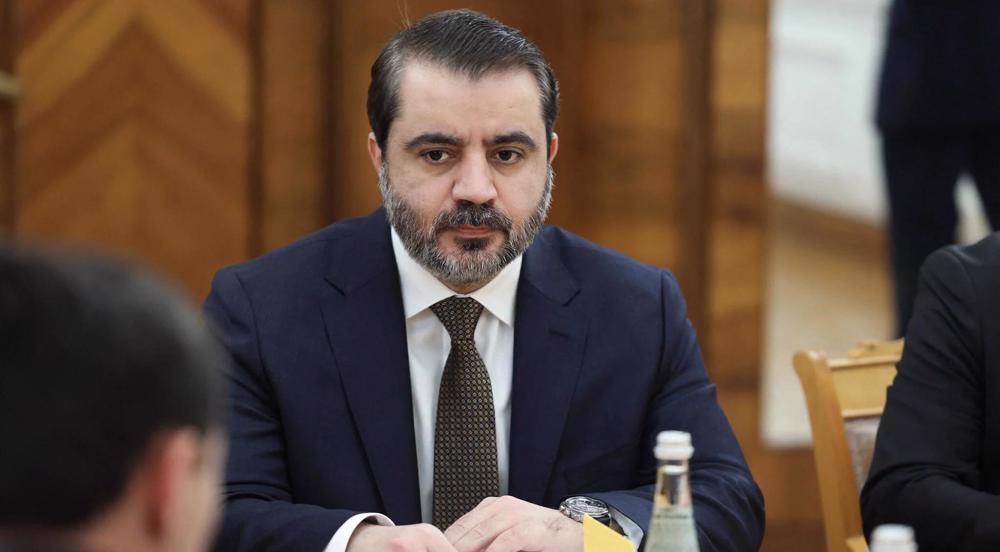
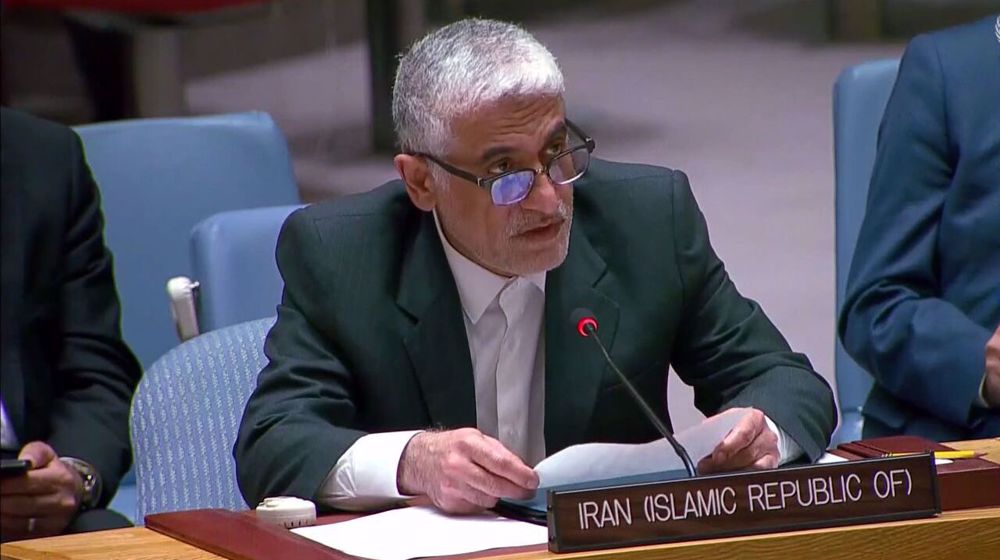
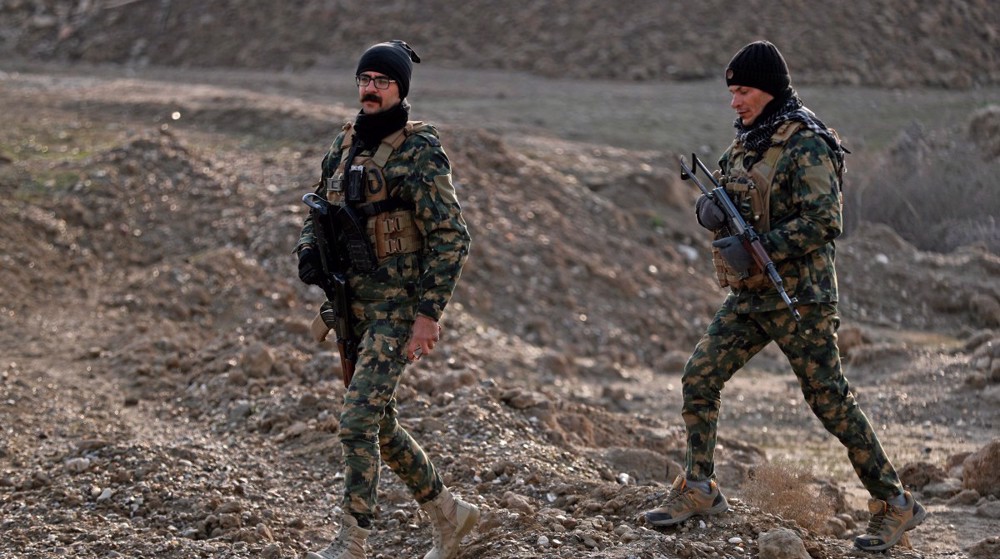



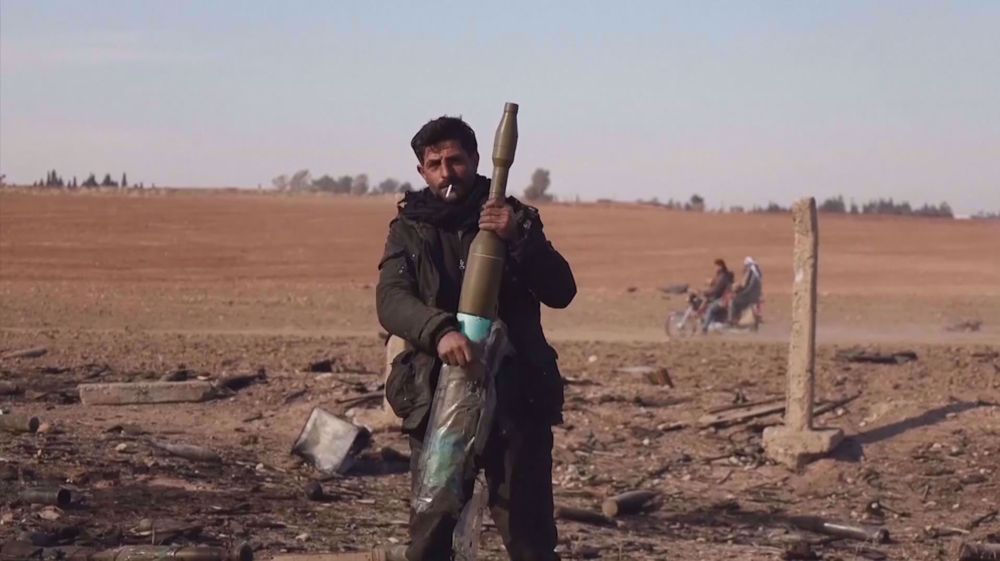
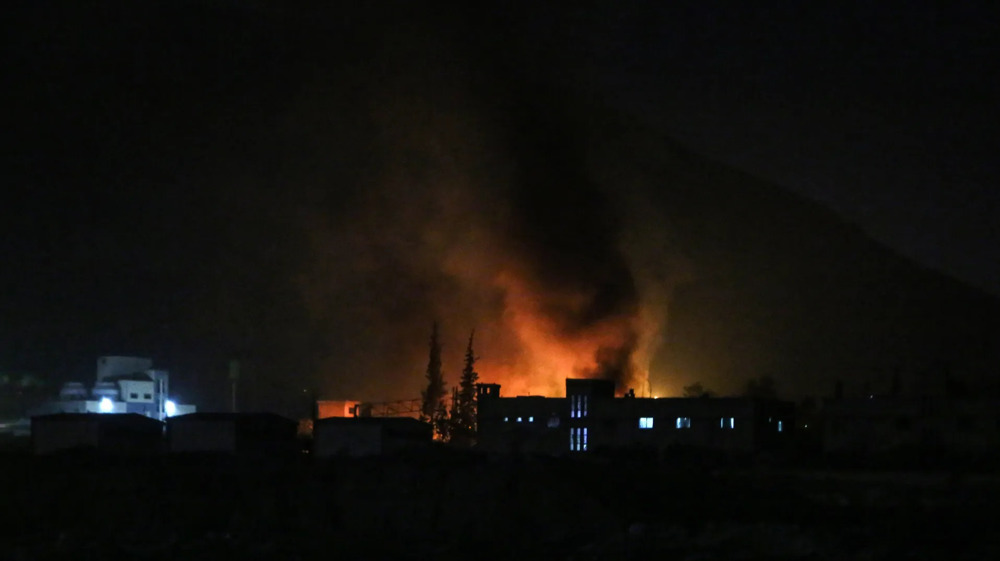




 This makes it easy to access the Press TV website
This makes it easy to access the Press TV website